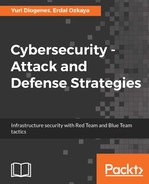Social media has opened up another hunting ground for hackers. The easiest way to find out a lot of information about people today is by going through their social media accounts. Hackers have found social media to be the best place to mine data concerning specific targets, as people are likely to share information on such platforms. Of particular importance today is data related to the companies users work for. Other key pieces of information that can be obtained from social media accounts include details about family members, relatives, friends, and residence and contact information. As well as this, attackers have learned a new way of using social media to execute even more nefarious pre-attacks.
A recent incident involving a Russian hacker and a Pentagon official showed how sophisticated hackers have become. The Pentagon official is said to have clicked on a post put up by a robot account about a holiday package. This is because Pentagon officials had been trained by cyber security experts to avoid clicking or opening attachments sent by mail. The official had clicked on a link that is said to have compromised his computer. Cyber security experts classified this as a spear phishing threat; however, instead of using emails, it used a social media post. Hackers are looking for this type of unpredictable, and sometimes unnoticeable, pre-attack. The attacker is said to have been able to access a wealth of sensitive information about the official through this attack.
Another way that hackers exploit social media users is by going through their account posts to obtain information that can be used in passwords or as answers to secret questions used to reset some accounts. This is information such as a user's date of birth, their parent's maiden name, names of the street that they grew up in, pet names, school names, and other types of random information. Users are known to use weak passwords due to laziness or lack of knowledge about the threats that they face. It is, therefore, possible that some users use their birth dates as their work email passwords. Work emails are easy to guess since they use a person's official name and end in an organization's domain name. Armed with their official name from their social media accounts, as well as viable passwords, an attacker is able to plan how to get into a network and perform an attack.
Another danger looming in social media is identity theft. It is surprisingly easy to create a fake account bearing the identity of another person. All that is needed is access to some pictures and up-to-date details of the identity theft victim. This is all in the playbook of hackers. They track information about organizations' users and their bosses. They can then create accounts with the names and details of the bosses. This will allow them to get favors or issue orders to oblivious users, even through the likes of social media. A confident hacker could even request network information and statistics from the IT department using the identity of a high-ranking employee. The hacker will continue to get information about the network's security, which will then enable him to find a way to hack into it successfully in the near future.
